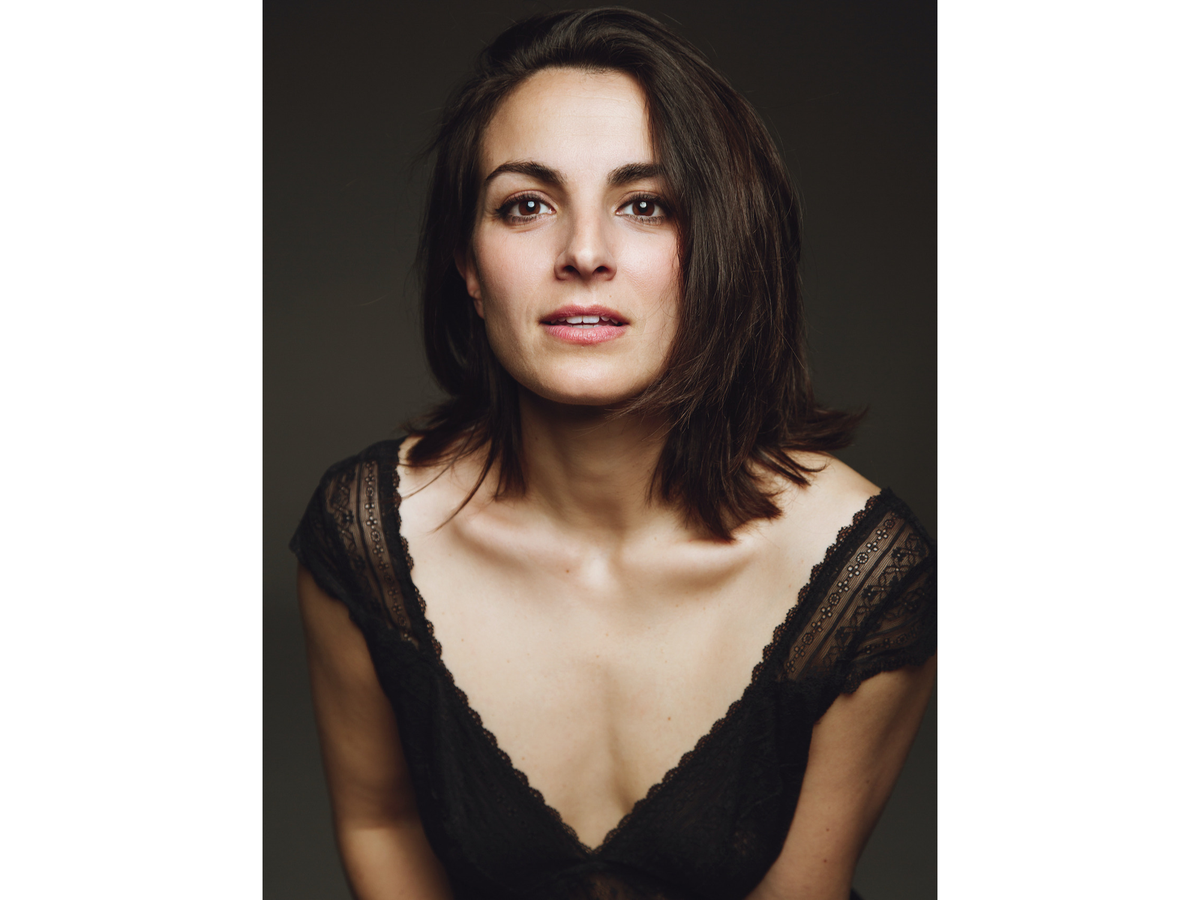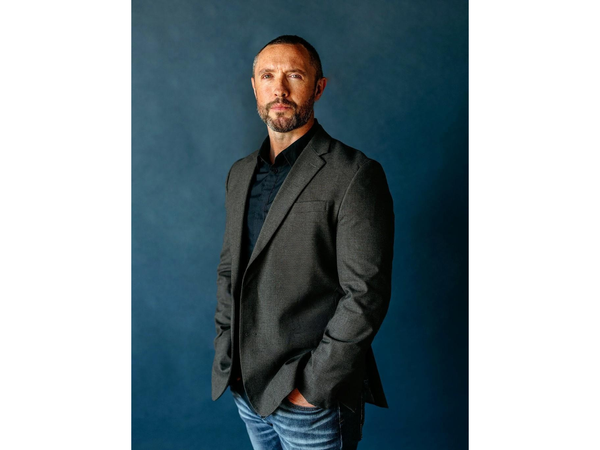SILVIA ACOSTA TALKS MAMACRUZ
"It's not good to consider all the opinions"


You never thought that acting was going to be your path?
In fact my real dream always was becoming a doctor, but this thing never happened. During my early years my parents used to sign me up to many different activities after school, spanish dance, violin, singing, judo, swimming. The only thing I never experimented was theater. When I was studying nursery I signed myself up to a drama school, and later on I discovered the Escola Superior de Artes in Seville, where I lived. So, it all began as a hobby, as an adventure, not very premeditated. I got job as an actress very soon, in a TV soap called 'Arrayán', and that was the real moment in which I thought that this could be a way of life.
Did you feel supported by those around you to pursue it?
At the beginning I didn't feel very supported, because everyone thought, even me, that this was not going to be my way. But when I finished my degree and moved to Madrid, they always helped me. One thing that I have been experimenting with during my career is that when I get a role in a good TV series or film, even theater, everyone tells me good things about me or my profession, when things do not go so well, people speak about all the difficulties this might have. That takes me to think that maybe it is not good to consider all the opinions of everyone all the time. It's very important to maintain self confidence strong, beyond any considerations, beyond feeling supported by your social circle.
Many of course don't get the career you have had. Were you ever worried yourself that your acting career would not work out?
Yes, of course, I've worried sometimes. Especially at the beginning, when I finished my studies and I felt the necessity of demonstrating for myself that I was taking the right way. These questions like, "Am I good at this?", "Would I be able to do it?" Nowadays I think that these questions don't have much sense. I believe I have learned a lot of tools and techniques, but at the end, and actor is an emotional communicator, and there are human aspects that I believe are necessary to understand for being able to transmit them. And the place to learn this is in pure life, observing people, trying to understand them, including unknown people or members of you family, which is much more difficult sometimes.
Does it take a certain naivety to have a chance at it?
Nowadays I wouldn't say it is a matter of naivety, I believe it is a matter of judgement, of not judging yourself or your character, even if you are lost artistically or not very sure about what you are doing. It seems easy to do it, it's not at all.
What is it mostly about acting you just couldn't walk away from despite the risk of failure?
One of the things that I like most from acting is the previous work at home. Creating a character, try to figure out what was it in the author's head to write these words, and how to compose it physically, what kind of gestures the character can do, it is like putting on the character's jacket, feeling comfortable in it and releasing it later for the next actress. Empathy is another good point of this art. Not to judge the character you have to play, I find it very important. And, as I said before, it is a learning for life.
You have a very extensive theatrical career, most of your time have been spent on stage. Is it a different feeling before stepping up in front of an audience and before the cameras start rolling for a film?
In this adrenaline, this poison before hearing “action”, or stepping up in front of people, it is what make us grow, I feel. I find that camera and stage are different languages, different energies that have to take part. It is true that I've grown as an actress on stage, but now I feel that I want to follow with the camera, I feel very interested in it. The poetic quality that it allows, the intimacy, the little things it can transmit, and how to let myself be transferred by the camera, how to be more available as an actress, I mean how to put everything I can to communicate the way the character is transmitting. But what I find the most difficult to do, where I feel the excellence is, is in pieces of classical theater. Because of the classical language in verse. I think this is the best school for an actor.
What do you usually look for, or try to avoid, when considering a role?
I find it very interesting the capacity to transform. I admire those kind of actors, like Meryl Streep or Bardem, because you just don't see themselves while they are acting. I would like to follow this kind of creations. I try to avoid circumstances which I am not agreeing with, and I mean the whole play, not particularly with a character, for example sexist theater plays or for political reasons. It is a very personal matter, but I have experienced being on stage without being in agreement with the matter I am defending, and it is very disgusting. I am not sure if I have any boundaries in regards to roles. My boundaries would be with the whole story, be it in a theater play or in the cinema, but I've never found a limit in a character yet.
Like Patricia Ortega’s previous work, ‘MamaCruz’ playfully explores breaking female stereotypes, following a grandma who experiences a late sexual awakening after accidentally discovering pornography while learning to use the internet. What drew you to this role?
I found 'MamaCruz' an original and strong story, something that not many people would dare to talk about, which is brave coming from Patricia. It's always interesting taking part in these kinds of projects. Even that I was going to be Kiti Manver's daughter was another strong reason to say yes. I admire her very much, she is a great profesional, and I have seen it while filming. And another reason was that all this story takes part in Seville, which is my city, and it being related with Semana Santa, which is a very strong Spanish tradition. I can't wait to see the Spanish audience reaction. Patricia Ortega as well has been a great discovery. She has been very clear with what she wants, and her way of directing actors, or managing the crew is amazing, she is very sensible and adaptable, and in the same way she is decided and firm with her decisions. It is very nice when you work in a project which has a director who knows very well what he or she wants, it has been a pleasure to work with Patricia.
What was your approach to exploring your character’s perspective?
I tried to put the focus in the character's freedom, she is a woman that leaves her whole life for her dreamed job, first dancer in an European ballet. The main thing is that she has a twelve-year-old daughter, and she leaves her with her grandmother, that is the matter that can be judged in a bad way, I consider. So I tried to create beyond the judgement, considering it as an usual situation, mothers that are free enough themselves to get any job and maintaining their children in different situations without feeling guilty. And of course, the feeling of happiness of working on what you are passionate about, in her case, dance.
Do you have any upcoming projects. Be it on stage or on the screen?
I work with a theater company called Nao d'Amores, I have since 2018, and fortunately we always have performances all around Spain. This year Ana Zamora, the director, has received the Nacional Theater Award, which is the most important recognition in this country. We will be performing in the Nacional Theater by March. I have a personal creation, playing with the camera with some actor friends, and I always try to keep myself active as an actress, taking part in trainings with other colleagues. And, of course, the premiere of 'MamaCruz' at Seminci Festival in Valladolid. At this momento, this are all my future projects. This is the thing about dealing with the intermittency of the profession, but, this matter warrants another interview.




